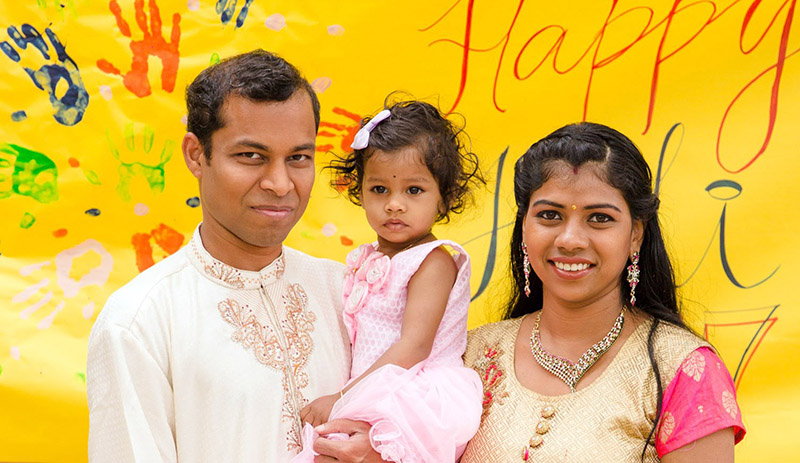
CSE and Pediatrics assistant professor Debashis Sahoo develops computational models for human cancer and uses them to predict important biomarkers and therapeutic targets. But he is also raising hopes in a very different area.

The UC San Diego professor and his wife, Sonalisa Pandey, are the brains behind the team Shanvi – named for their daughter. The team was chosen to be one of 21 semifinalists in a global competition to come up with inexpensive devices to help women respond to threats of many kinds.
The $1 million Anu and Naveen Jain Women’s Safety XPRIZE is administered in India but open to ideas and inventors around the world. The competition challenges teams to “leverage technology to create accessible and affordable safety solutions that help tackle violence and harassment against women.”
One in three women have faced physical or sexual violence in their lifetime, according to the World Health Organization, yet 90 percent of victims don’t report it. “Growing up near a small village in Odisha, India, my own sister didn’t have the same opportunities that I did, just because our parents feared for her safety," said Sahoo. "Now, I have a 2-year-old daughter of my own and I want her to be safe, and I don’t want her to be limited in any way.”

Pandey and 2-year-old daughter Shanvi, the wireless
device's namesake.
To keep the price of innovation down and ensure that it can be made available to women in developing countries, competitors must come up with a device or technology that can sell for no more than $40.
Sahoo, Pandey and the 20 other teams in the semifinals now have six months to develop a prototype of their wireless devices. The minimum functionality must show that an emergency alert can be triggered, and critical information relayed to a community of responders, within 90 seconds.
Sahoo’s Shanvi team submitted a proposal to develop a “hardware and software solution for safety triggers and response using the latest technology.” Powered by body movements, the Shanvi wireless device would always be charged and doesn’t require batteries. The device is designed to be worn discreetly near the ear, as an earplug or earring. If the device senses a specific change in a woman’s breathing pattern, it immediately alerts a smartphone app that can be used by anyone in the woman’s life—family member, friend or anyone willing to be part of her response network.
“The advantage here is that by simply altering her breathing, a woman could send a distress signal in any situation, even if she can’t speak or use her arms,” Sahoo said.
All 21 prototypes will be tested next April in Mumbai, India. The Women’s Safety XPRIZE will award $1 million to the Grand Prize-winning team in June 2018.

